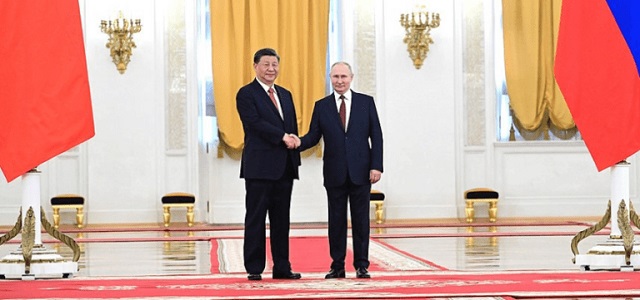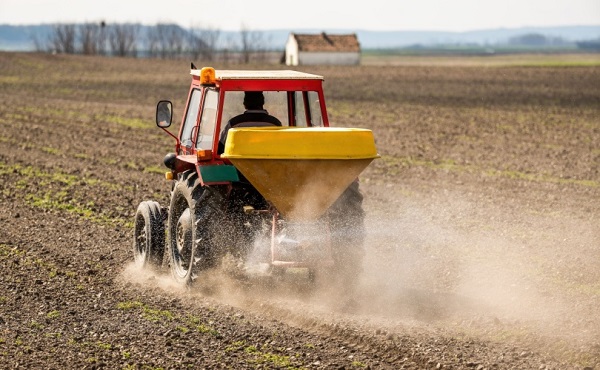By Serghey Sukhankin
Moscow – with China’s help, approval, and likely, guidance – intends to challenge the West by changing the rules of trade in foods critical to global buyers.
Throughout its entire history the Soviet Union faced one existential peril that was never solved until its collapse in 1991 – the prospect of food shortage and mass starvation. Its cumbersome, utterly ineffective, and artificially subsidized agricultural sector was a living testament to the erroneous nature of a planned command-administrative economic model.
The situation with food and staples became so dire that starting from 1963 the Soviet Bloc (the USSR, Hungary, Bulgaria, and Czechoslovakia) started importing wheat from the United States, Canada, and Australia. This practice continued until the demise of the Soviet Empire. Everything changed after the collapse of the USSR and introduction of market-oriented reforms in Russia in the 1990s, along with the growth of commodity prices and Russia’s inclusion in the global economic architecture.
By 2000, Russia had already doubled the amount of grain it produced, making it one of the world’s top producers of this strategic commodity. By the late 2010s to early 2020s, Russia emerged as a one of the world’s largest exporters of grain and agricultural products.
However, Russia quickly realized that commodities – especially food along with hydrocarbons – could become a very useful tool of coercion in geopolitical confrontations with its rivals. This became abundantly clear after the outbreak of Russia’s full-scale war of aggression against Ukraine in 2022, when both Russia’s top-tier politicians (such as Deputy Chairman of the Security Council and former President Dmitry Medvedev) and chief propagandists (such as Margarita Simonyan, the editor-in-chief of the Russian state-controlled broadcaster RT) claimed “hunger” to be Russia’s natural ally, and threaten to cut supplies of food staples to “unfriendly countries.”
At the same time, Russia tried to spark a confrontation between Ukraine and Poland, Hungary, Slovakia over commodities and staples supplies. Ironically, rather than hurting the West, Russia’s actions had a worse impact on so-called “friendly countries” – especially those in the Global South, where access to inexpensive and available foodstuffs is a matter of life and death.
Russia’s strategy of intimidation was also ineffective due to its invasion of Ukraine in February 2022. Its so-called “special military operation” was supposed to be quick and decisive. Two years later, the war has imposed massive pressure on the Russian budget, requiring a constant cash flow that mainly comes from exporting raw materials and commodities.
Forced to evolve its strategy, Russia seems to be abandoning its plan of threatening to starve its adversaries. Instead, Moscow – with China’s help, approval, and likely, guidance – intends to challenge the West by changing the rules of trade in foods critical to global buyers. This strategy is being implemented via pursuit of two interrelated initiatives: formation of a “Grain Entente” between Beijing and Moscow, and the use of the BRICS trading bloc (consisting of nine nations led by founding countries Brazil, Russia, India, China, and South Africa) as a critical vehicle of change.
The first major step in this direction was made in October 2023, when the Russian Food Export Trade LLC company and China Chengtong International Limited concluded the “grain deal of the century” – the largest contract of this type ever signed between the two countries – according to which the Russian side pledges to deliver 70 million tons of various types of grain (produced in the Urals, Siberia, and the Far East) over the next twelve years for US$26.5 billion. As a result, already in the first quarter of 2024, Russia broke a historical record by supplying China with large volumes of oats (.7 times more than the previous year) and buckwheat (3.3 more than the previous year) receiving a staggering US$127 million. Yet, mounting grain sales is only the tip of the iceberg. The most critical development is China’s gradual overtaking of Russia’s logistical infrastructure, which could pave the way for China’s growing control over Eurasian logistics and trade routes.
In September 2023, officials from Russia and China met at the 8th Eastern Economic Summit in Vladivostok, where officials from Russia and China agreed to create a logistical hub – the “Grain Terminal Nizhneleninskoye–Tongjiang” in the Jewish Autonomous Oblast. The goal is to create the Russia’s first “land-based grain fleet.” Consisting of 22,000 containers transporting grain, it will be capable of moving up to 600,000 tons of grain with a maximum storage capacity of up to 8 million per year. The strategic significance of this move is clear. On one hand, it allows Russia to “safeguard” itself against sanctions pressure, which will likely make Russia’s behaviour in Europe (and elsewhere) even more aggressive and unpredictable. On the other hand, China – which will acquire de facto control over Russia’s grain – will see Beijing become the world’s largest grain hub, giving it enormous power to influence and set global food prices.
Russia’s next major move was to push for the creation of a BRICS grain exchange. Fully supported by Russian President Vladimir Putin, the proposed grain exchange would bring together some of the world’s biggest grain buyers and exporters, cumulatively accounting for more than 42 per cent of global grain production (at nearly 1.2 million ) and 40 per cent of global consumption. International observers and subject experts have already warned that Russia- and China- adverse exporters of grain and agricultural products such as the United States, Canada, and Australia “might face challenges in maintaining their market share and negotiating for favourable trade terms, while facing competition from cheaper Russian .” In effect, this may have “significant implications for global agricultural dynamics, ranging from geopolitical and geoeconomic realignments to increased competition in agricultural trade. For traditional exporters such as Australia and the US, it is a call to reassess their national policies and strategies to navigate the evolving landscape of international trade to maintain competitiveness.”
The emergence of the BRICS grain exchange – which will undoubtedly increase Russia’s (and most likely China’s) geoeconomic role – is only a part of a much bigger strategic challenge. If the BRICS grain exchange is successful, it will have a spillover effect on another critical product – the fertilizers required by both developed and developing nations. Russia already has a competitive advantage in fertilizer production, and post-2022, has tried to use its fertilizers as geopolitical tools pressuring international organizations (such as the United Nations) to lobby for the end of sanctions imposed on Russia after its full-scale invasion of Ukraine.
– If the Russia-China grain alliance proliferates and BRICS becomes a major player in the global flow of grains and other foodstuffs, it could prompt even greater changes to the established world market. Analysis of Russian-language sources and publications indicates that the next step would be the creation of an alternative to the “West-dominated” financial architecture, and ultimately, the transformation of global trade.
Russia’s plans (undoubtedly supported by China) pose a very serious challenge to Canada, its allies, and other liberal democracies.
They will likely suffer economic losses of grain exports due to the cheapness of Russian grain, and that country’s current occupation of a large part of Ukraine’s most fertile black-earth areas. If unchecked, Russia could assume control of more than 30 percent of global grain supplies.
Currently, the Indo-Pacific region is Canada’s largest export destination, with agriculture and food exports totaling $9.4 billion in 2022. If China gains unfettered access to Russian grain, it could seriously undercut Canada’s trade.
Making matters worse for Canada, its relationship with New Delhi is arguably at an all-time low, making it challenging to pivot sales of its agricultural products toward India or other countries without significant economic losses.
Looking at the bigger picture, there are a host of other potential threats to the global foods market, from the ongoing war in Ukraine to droughts and adverse climate conditions in the US, Argentina, and Australia. Amid growing uncertainty and upheaval, it’s possible that the global foods market will be carved up and dominated by Russia and other undemocratic, aggressive nations. Given Russia’s strategic goal of weakening the European Union, and ultimately causing its disintegration, it will continue to use artificially created food shortages in Africa and the Greater Middle East as a geopolitical weapon against the EU. The Kremlin hopes to replicate the crisis that occurred in 2015, when hundreds of thousands (now, potentially millions) of illegal migrants and asylum seekers poured into the EU – wreaking havoc, fostering intra-EU conflict, and assisting the rise of far-right (and left) populists.
The first step in Russia’s grand strategy is the de facto establishment of the Russo-Chinese “Grain Entente.” The next move will be the creation of a BRICS grain exchange and inclusion of other strategic commodities under the umbrella of BRICS operations. This is clearly a wakeup call for the West. We need to heed it, or else risk more dire, far-reaching consequences.
Dr. Sergey Sukhankin is a Senior Fellow at the Jamestown Foundation (Washington, DC) and a Fellow at the North American and Arctic Defence and Security Network (NAADSN). His project discussing the activities of Russian PMCs, “War by Other Means,” informed the United Nations General Assembly report entitled “Use of Mercenaries as a Means of Violating Human Rights and Impeding the Exercise of the Right of Peoples to Self-Determination.”
This article was published with support from Konrad-Adenauer-Stiftung Canada.

















